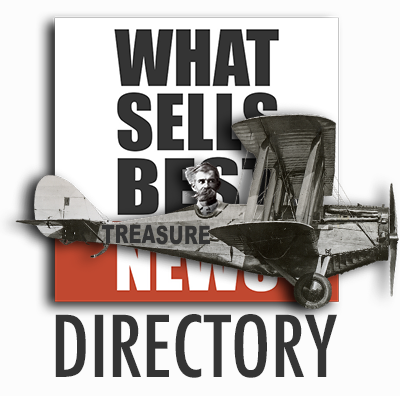🔎 [i]>Free Appraisals
What To Know
News | [ Tools ] | Lists | Map | [ Info ]
✩ Fast & Free ✩
█ A-Z // Fortune Finders 🔗 - [ i ]
Understanding
Introduction to Auction Estimates and Consignment
Most specialty resale venues offer free ballpark auction estimates for high-quality antiques and collectibles. Auction houses and galleries provide these free estimates as part of their consignment process, aiming to attract valuable items for sale. However, it’s important to note that ballpark estimates are not suitable for estate settlements, insurance purposes, or other formal valuations. For more details on auction estimates, explore this helpful article 🔗 by PBS Antiques Roadshow.
Verifying Specialist Credentials
Accurate estimates require highly specialized knowledge. Therefore, it is crucial to verify the credentials and customer ratings of specialists in your item's category before reaching out or sharing your contact information.
Obtaining Multiple Estimates
Experts recommend obtaining multiple estimates from different specialists. This helps you compare valuations, identify market trends, and make an informed decision before committing to a consignment or sale.
Understanding Auction Fees and Consignment Process
Before consigning your item, it's vital to understand the fee structure of auction houses. This includes both buyer’s premiums and seller’s commissions, which will impact the total cost of the auction services.
The Importance of Provenance and Documentation
Documenting your item's history and authenticity—known as provenance—can significantly affect its appraisal value and final auction price. Ensure all relevant documents are gathered and presented during the valuation process.
Do Not Clean, Polish, or Modify
In many cases, removing the original patina (aged finish) from a valuable collectible—such as a coin, piece of furniture, or artwork—can decrease its value by more than 90% because collectors prioritize originality. Before making any changes, seek guidance from reputable specialists in your item's category regarding repairs, cleaning, or modifications.
Tip: If you plan to have your item appraised, avoid altering its condition in any way beforehand. Even seemingly minor actions—such as wiping dust from a surface—can affect an item’s value, particularly if it removes signs of age or provenance that collectors and appraisers consider important. To ensure the most accurate evaluation, bring the item as-is and let the specialist recommend any necessary preservation steps.
Selecting the Right Auction House
When choosing an auction house, consider its specialty areas, market reputation, past auction successes, and how well it aligns with your item’s category. Additionally, review commission structures and marketing reach to ensure the best possible outcome for your sale.
Staying Informed on Market Trends
Stay informed about the latest trends in the antiques and collectibles market to maximize your returns. Regularly visit the social media pages of specialty auction houses and read well-regarded trade magazines to familiarize yourself with current prices and popular items.
Legal and Insurance Considerations
Be sure to understand the legal agreements involved when consigning items to an auction house. Also, ensure your items are insured against damage or loss during transit to and from the auction house, as well as throughout the auction process.
Further Resources
For more detailed information on each of these topics and to learn more about the verification process, click here. Explore additional resources to deepen your understanding of the auction world. Learning about key strategies and industry trends can help you maximize the value of your collectibles and navigate the consignment process with confidence.

